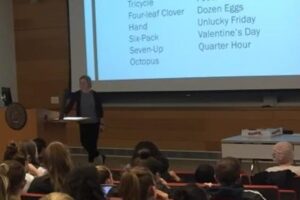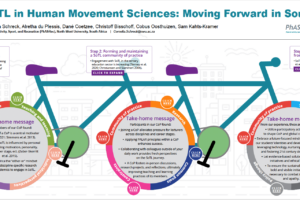New SoTL Award in Family Science
Written by Trent W. Maurer, Professor of Child & Family Development at Georgia Southern University, tmaurer@georgiasouthern.edu
In the fall 2017 issue of one of the publications in my discipline of Family Science, National Council on Family Relations Report, I saw an announcement that one of the membership groups was interested in creating an annual award for an outstanding SoTL paper in the discipline. This award would represent a major step forward in terms of recognizing and valuing SoTL by the major professional organization in my discipline. The announcement asked for volunteers to serve on a committee to help develop the award. As a member of the ISSOTL Advocacy Committee, this seemed like the perfect opportunity to further advocate for SoTL in my discipline, so I naturally volunteered!
As part of the process of developing the Advancing Family Science Section Outstanding SoTL Paper Award, I drew heavily on what I have learned from ISSOTL and the broader international, interdisciplinary SoTL community. For example, because there is not yet a consensus definition of SoTL (McKinney, 2015), it was necessary to pick among multiple possible definitions the one that best aligned with my discipline of Family Science. As I have previously written (Maurer & Law, 2016), I think the definition proposed by Potter and Kustra (2011) works best for Family Science, and I was pleased that I was able to get this definition of SoTL selected for use in the award.
Additionally, it was necessary to determine the evaluation criteria that would be used for judging submissions for the award. To me, the obvious choice was to use Felten’s (2013) five principles of good practice in SoTL, both because they are used as the official review criteria of Teaching and Learning Inquiry, and because they were intentionally designed to be applicable to SoTL work in all disciplines. Again, I was pleased that I was able to get the scoring rubric for the award to be aligned with those five principles, essentially stating that what makes for “good SoTL” as defined by ISSOTL makes for “good SoTL” in Family Science.
The award proposal was approved by our professional organization in March 2018, and the call for submissions was issued a few days later. The first recipient of the Advancing Family Science Section Outstanding SoTL Paper Award will be announced at the annual National Council on Family Relations conference in November 2018. I couldn’t be more pleased to share the news of this SoTL advocacy victory with all of you!
References:
- Felten, P. (2013). Principles of good practice in SoTL. Teaching & Learning Inquiry, 1 (1), 121-125. doi: 10.2979/teachlearninqu.1.1.121
- Maurer, T. W., & Law. D. (2016). The scholarship of teaching & learning in family science. Family Science Review, 21(2), 2-17. Retrieved from http://www.familyscienceassociation.org/familysciencereview/vol21/issue2%20
- McKinney, K. (2015). The more things change, the more they stay the same. International Journal for the Scholarship of Teaching and Learning, 9(1), Article 2. Retrieved from http://digitalcommons.georgiasouthern.edu/ij-sotl/vol9/iss1/2
- Potter, M. K., & Kustra, E. D. H. (2011) The relationship between scholarly teaching and SoTL: Models, distinctions, and clarifications,” International Journal for the Scholarship of Teaching and Learning, 5(1), Article 23. Retrieved from http://digitalcommons.georgiasouthern.edu/ij-sotl/vol5/iss1/23




